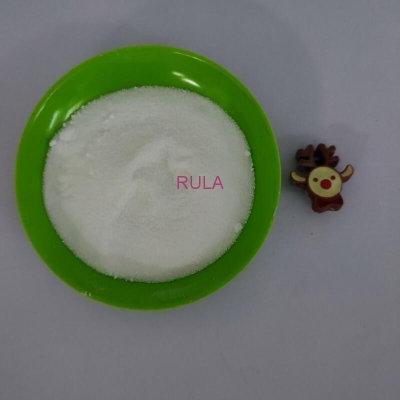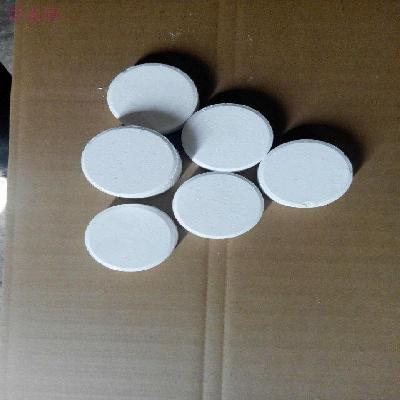-
Categories
-
Pharmaceutical Intermediates
-
Active Pharmaceutical Ingredients
-
Food Additives
- Industrial Coatings
- Agrochemicals
- Dyes and Pigments
- Surfactant
- Flavors and Fragrances
- Chemical Reagents
- Catalyst and Auxiliary
- Natural Products
- Inorganic Chemistry
-
Organic Chemistry
-
Biochemical Engineering
- Analytical Chemistry
- Cosmetic Ingredient
-
Pharmaceutical Intermediates
Promotion
ECHEMI Mall
Wholesale
Weekly Price
Exhibition
News
-
Trade Service
Systemic inflammation can affect the blood concentration of clozapine and cause adverse consequences
.
There may be a strong inflammatory reaction in patients with new coronavirus positive, so caution should be used when using clozapine
.
The case report was a white male, 68 years old, suffering from bipolar schizoaffective disorder and was treated with clozapine
.
Physical history includes type 2 diabetes, chronic obstructive pulmonary disease (COPD), chronic kidney disease, and quit smoking in 2010
.
This time he was admitted to the hospital for acute cystitis and was treated with nitrofurantoin
.
Clozapine was stopped on admission
.
On the second day, the patient developed shortness of breath and was given azithromycin/steroids for acute exacerbation of COPD
.
The laboratory reported positive for the new crown and switched to dexamethasone treatment
.
The patient did not need oxygen at the time
.
On the 4th day, the patient developed acute mania.
The medical team believed that it was related to the use of steroids and the discontinuation of clozapine
.
A psychiatric consultation was requested, and it was planned to restart clozapine treatment
.
The baseline clozapine plasma concentration is unknown
.
Clozapine 12.
5 mg bid was given on the 4th day, and the dose was increased to 100 mg/d on the 6th day
.
As the patient is still in agitated and manic state, increase the dose to 200 mg/d on the 7th day, increase the dose to 300 mg/d on the 8th day, and increase the dose to 400 mg/d on the 9th day
.
It is understood that the dose used by patients at home is 400 mg/d
.
In addition, valproate 500 mg bid was given on the 6th day; the olanzapine prn was not effective in improving agitation, and the chlorpromazine was changed on the 9th day
.
On days 11-12, the patient still had agitation and suicidal ideas.
On the 13th day, the blood concentration was checked and the valproate was increased to 1,500 mg/d
.
Other medications for patients include budesonide/formoterol, finasteride, tamsulosin, glipizide, insulin glargine, hydrochlorothiazide, lisinopril, metoprolol, hydroxyzine, simva Statin
.
After that, the patient's respiratory condition continued to deteriorate and he was given a nasal cannula
.
Due to the inability to maintain intravenous access, the patient could not receive remdesivir treatment
.
Under the treatment of clozapine 400mg/d, the patient experienced salivation, and the demand for oxygen developed from a 2L nasal cannula to 100% oxygen inhalation with a non-rebreathing mask
.
Please consult, and after evaluation, it was found that the patient had aspirated
.
The patient's condition continued to deteriorate, and several laboratory tests reported that inflammation markers, ferritin, and C-reactive protein (CRP) continued to rise
.
After several days of progressive worsening of respiratory failure, the patient was converted to palliative care and died within 24 hours
.
Discussion Previous evidence shows that severe inflammation can lead to the release of cytokines; the latter can inhibit the activity of CYP1A2 isoenzymes, leading to an increase in clozapine blood concentration
.
Elevated CRP can be regarded as an indicator of inflammation, and can also reflect the fluctuation of clozapine blood concentration
.
This case suggests that the dosage of clozapine needs to be cautious, and it is advisable to monitor CRP and clozapine blood concentrations at the same time
.
Once patients on clozapine develop pneumonia, it can be fatal
.
Compared with other second-generation antipsychotics, clozapine and pneumonia appear to be more related
.
Clozapine is associated with excessive salivation and sedation, and can easily induce aspiration pneumonia
.
The new crown, systemic inflammation, and increased blood concentration of clozapine can increase the risk of aspiration pneumonia in patients
.
Although the current data are still limited, studies have shown that severe infections can increase the blood concentration of clozapine by 2-3 times
.
Therefore, for patients with severe infections, clozapine may be temporarily reduced to one-third to one-half of the original dose, and the original dose will be slowly increased after the inflammation improves
.
In addition, sudden arrest of clozapine can also induce rebound symptoms, including cholinergic rebound and deterioration of psychosis; the patient's agitation and psychosis may also be related to it
.
If the inflammation and respiratory symptoms of patients with new coronary disease are getting worse, the pros and cons should be carefully evaluated when using and discontinuing clozapine
.
Guidelines for psychiatric clinical management during the period of new coronavirus pneumonia (3): Use of clozapine, lithium and benzodiazepines | Guidelines consensus 2020-11-05 Literature index: Uppalapati S, Karalis P, Cunningham EA.
A case of rapid clozapine retitration in a patient with COVID-19 resulting in acute respiratory demise.
Prim Care Companion CNS Disord.
2021;23(6):21cr03120.
Click "Read Original" to view and retrieve historical articles
.
.
There may be a strong inflammatory reaction in patients with new coronavirus positive, so caution should be used when using clozapine
.
The case report was a white male, 68 years old, suffering from bipolar schizoaffective disorder and was treated with clozapine
.
Physical history includes type 2 diabetes, chronic obstructive pulmonary disease (COPD), chronic kidney disease, and quit smoking in 2010
.
This time he was admitted to the hospital for acute cystitis and was treated with nitrofurantoin
.
Clozapine was stopped on admission
.
On the second day, the patient developed shortness of breath and was given azithromycin/steroids for acute exacerbation of COPD
.
The laboratory reported positive for the new crown and switched to dexamethasone treatment
.
The patient did not need oxygen at the time
.
On the 4th day, the patient developed acute mania.
The medical team believed that it was related to the use of steroids and the discontinuation of clozapine
.
A psychiatric consultation was requested, and it was planned to restart clozapine treatment
.
The baseline clozapine plasma concentration is unknown
.
Clozapine 12.
5 mg bid was given on the 4th day, and the dose was increased to 100 mg/d on the 6th day
.
As the patient is still in agitated and manic state, increase the dose to 200 mg/d on the 7th day, increase the dose to 300 mg/d on the 8th day, and increase the dose to 400 mg/d on the 9th day
.
It is understood that the dose used by patients at home is 400 mg/d
.
In addition, valproate 500 mg bid was given on the 6th day; the olanzapine prn was not effective in improving agitation, and the chlorpromazine was changed on the 9th day
.
On days 11-12, the patient still had agitation and suicidal ideas.
On the 13th day, the blood concentration was checked and the valproate was increased to 1,500 mg/d
.
Other medications for patients include budesonide/formoterol, finasteride, tamsulosin, glipizide, insulin glargine, hydrochlorothiazide, lisinopril, metoprolol, hydroxyzine, simva Statin
.
After that, the patient's respiratory condition continued to deteriorate and he was given a nasal cannula
.
Due to the inability to maintain intravenous access, the patient could not receive remdesivir treatment
.
Under the treatment of clozapine 400mg/d, the patient experienced salivation, and the demand for oxygen developed from a 2L nasal cannula to 100% oxygen inhalation with a non-rebreathing mask
.
Please consult, and after evaluation, it was found that the patient had aspirated
.
The patient's condition continued to deteriorate, and several laboratory tests reported that inflammation markers, ferritin, and C-reactive protein (CRP) continued to rise
.
After several days of progressive worsening of respiratory failure, the patient was converted to palliative care and died within 24 hours
.
Discussion Previous evidence shows that severe inflammation can lead to the release of cytokines; the latter can inhibit the activity of CYP1A2 isoenzymes, leading to an increase in clozapine blood concentration
.
Elevated CRP can be regarded as an indicator of inflammation, and can also reflect the fluctuation of clozapine blood concentration
.
This case suggests that the dosage of clozapine needs to be cautious, and it is advisable to monitor CRP and clozapine blood concentrations at the same time
.
Once patients on clozapine develop pneumonia, it can be fatal
.
Compared with other second-generation antipsychotics, clozapine and pneumonia appear to be more related
.
Clozapine is associated with excessive salivation and sedation, and can easily induce aspiration pneumonia
.
The new crown, systemic inflammation, and increased blood concentration of clozapine can increase the risk of aspiration pneumonia in patients
.
Although the current data are still limited, studies have shown that severe infections can increase the blood concentration of clozapine by 2-3 times
.
Therefore, for patients with severe infections, clozapine may be temporarily reduced to one-third to one-half of the original dose, and the original dose will be slowly increased after the inflammation improves
.
In addition, sudden arrest of clozapine can also induce rebound symptoms, including cholinergic rebound and deterioration of psychosis; the patient's agitation and psychosis may also be related to it
.
If the inflammation and respiratory symptoms of patients with new coronary disease are getting worse, the pros and cons should be carefully evaluated when using and discontinuing clozapine
.
Guidelines for psychiatric clinical management during the period of new coronavirus pneumonia (3): Use of clozapine, lithium and benzodiazepines | Guidelines consensus 2020-11-05 Literature index: Uppalapati S, Karalis P, Cunningham EA.
A case of rapid clozapine retitration in a patient with COVID-19 resulting in acute respiratory demise.
Prim Care Companion CNS Disord.
2021;23(6):21cr03120.
Click "Read Original" to view and retrieve historical articles
.







